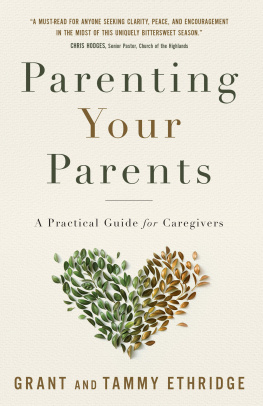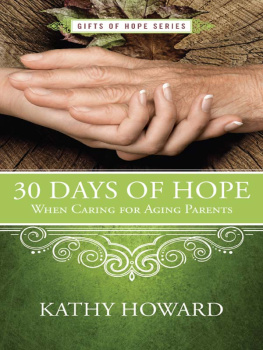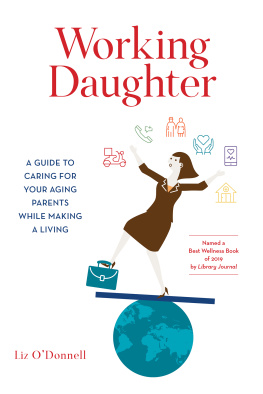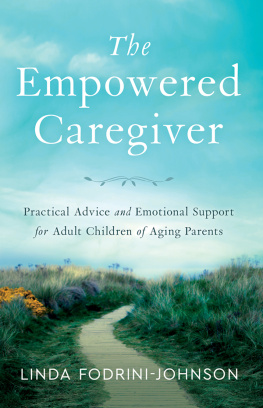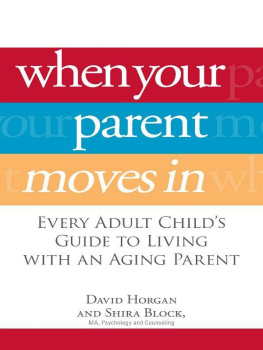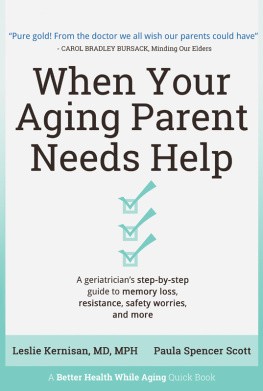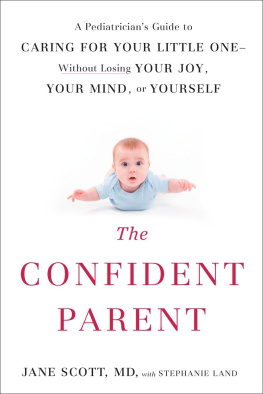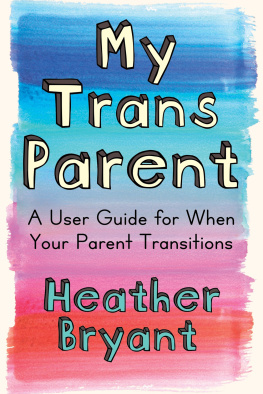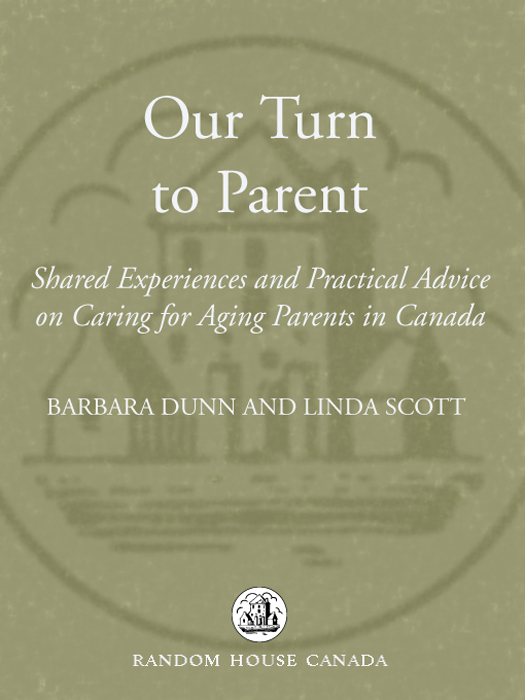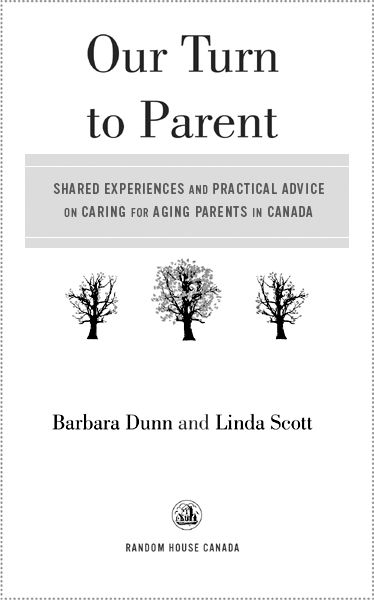INTRODUCTION
SHARED EXPERIENCES
W eBarbara and Lindaworked in the same office and talked every day about the normal things one talks about with co-workerscareer, family, friends. And then, one day in 2006, our relationship changed. Barbaras eighty-year-old father was diagnosed with early stage Alzheimers disease and soon her family was embroiled in a world of doctors, social workers and care facilities, a world of overwhelming and often confusing information. Family members had to come together and make decisions about what was best for their father, but also for their mother. It was an emotional time for Barbara, and because of the camaraderie already established, she felt that she could share with Linda some of what was happening. When she did, Barbara found that Linda too had a story to share.
Lindas seventy-seven-year-old mother lived with her and her husband and was an active senior. Linda had begun to notice small signs that her mother was aging: a cold that became a serious infection (should I talk to her doctor?), a stove burner left on (but dont we all forget at one time or another?). When Barbara started talking about her experiences it was a wake-up call for Linda, who realized that she was missing important information about her mothers plans and possible needs for the future. Who had her mom selected to have power of attorney for personal care? Where was her mothers will? What resources were available in the event that her mother needed formal care?
Barbara had to contend with a large family within which there were conflicting ideas as to what should be done to help their parents. Meanwhile Lindas only brother lived far away, so she was concerned that the weight of responsibility would fall on her shoulders.
As the months came and went, and the crisis in Barbaras family gradually subsided, we continued to talk. We discussed our fears, both for our parents and for ourselves. How would we manage? What would we do? What should we do? What clues about her fathers illness had Barbara and her siblings missed? What was Linda missing even now? In those exchanges we found much more than information. We found reassurance and kinship.
As we shared our stories, we also started to listen to others around us, and discovered that many people in our office, in our neighbourhoods, and among our friends had similar concerns and were taking on similar responsibilities for their aging parents. Initially we didnt use the term caregiver to describe ourselves; we didnt even know the term existed. We didnt know that we were part of the 2.1 million people, many of us women, looking after our elderly parents, or that the Canadian government is conducting research about us, the boomer generation and the sandwich generation, and the impact that we, as caregivers to our parents, have on our society and our economy.
As the two of us helped each other to find a sense of hope and understanding, we realized that many other people, people like you, needed to realize that they are not alone.
You are part of a growing community. Be assured that there are others who know what you are going throughthat youre experiencing good days and bad, and that you are doing the best you can.
You have taken on the responsibilities of caregiving because your parents are family and you love them. While you probably share other aspects of your lives with friends and co-workers and occasionally even strangers, you might feel that to talk about your parents health and personal affairs is an invasion of their privacy. You may feel a sense of guilt and uncertainty and isolation in your role as caregiver. But by sharing stories you will discover that you are not alonethat others are experiencing similar emotions: love, anger, frustration, sadness, desperation, loneliness.
Back in 2006 we found in each other someone who understood, someone who, although she was not going through exactly the same scenario, also had a story to share and an ear to lend. And even during the most frustrating or saddest times we had someone who could help us to see glimmers of humour. But what neither of us could find was a book to guide us through the decisions we were being called upon to make. We wanted a quick reference, a place to find specifically Canadian information to help us make those difficult decisions. We wanted a book of shared experiences and community.
So we decided to write it. Our Turn to Parent highlights the key areas that you, as a caregiver, need to be aware of and involved in during the early stages of your parents senior years, and also discusses the situations and choices you may face as your parents move into their later senior years.
Everyones experience is unique, and we are each at different stages of caregiving, yet what we share is that we are all trying to do what is best for our parents with the resources we have. We, the authors, are not experts. Like you, we are trying to find our way. What weve included in this book are the resources and information we wish we had had before we became caregivers to our aging parents. While it cant provide you with easy answers to the questions you will face, this book can provide suggestions and resources to help you through this life-altering journey.
Sadly Lindas journey as caregiver came to an end with the passing of her mom during the writing of Our Turn to Parent, but in these pages we both share our experiences. We have also collected the stories of other families from across the country. Our hope is in these personal stories you may hear an echo of your own situation, and find the kind of kinship that the authors discovered, and still share.
Where You Will Find Information
Most people do not have the skill sets and resources to act as caregivers on their own. If youre lucky enough to have professional caregivers, nurses or social workers in your family, be thankful, but more likely you will need to seek support systems. A tremendous amount of information is spread across many sources, including government agencies, community services, medical and financial institutions, and the Internet. Often retrieving necessary and practical information is a confusing, time-consuming and overwhelming process. Its a great deal to sift through when you are in the middle of a crisis. We hope that in Our Turn to Parent you will discover a resource to reduce the confusion.
We explore the major caregiving issues that will confront you. Each chapter covers one of these issues and offers practical information as well as tips, resources and personal stories that will allow you to further research your individual caregiving needs. Following an overview of caregivers and seniors in Canada, we explore how to


